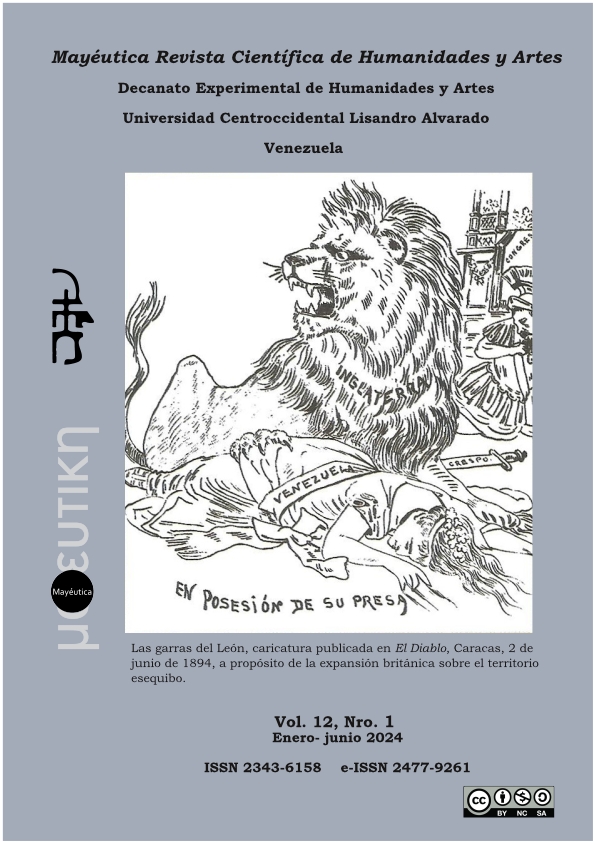The formation of values with collective productive capabilities: a research agenda pending of the capabilities approach
Keywords:
value formation, collective productive capabilities, capabilities approach, mobilisation, structural transformationsAbstract
This article analyzes, from a sociological perspective, collective productive capabilities as promoters of the structural transformations that developing countries need to reduce poverty, as an alternative to the emphasis on education
and health promoted by Sen’s human capabilities approach. The objective is to answer the question of how values are generated in people, whether it is something only individual or a more social process. The hypothesis that answers
this question is that values are formed mainly with social interrelations. For this, the article is based on the theoretical framework of Berger and Luckmann, and Giddens’ theory of structuring; both theories are applied to the issue of collective
productive capabilities, as understood by Andreoni and others. These approaches reinforce the emerging category of collective capabilities, which criticizes the individualistic emphasis of Sen’s capabilities approach. The article concludes that, accepting that human values are formed mainly through social relations will strengthen the idea that it is possible to mobilize people to improve human development in less advanced countries; such social relations can be practiced in various ways, one of which is, as the article assumes, with collective productive capabilities.
Downloads
References
Abramovitz, M. (1986). Catching up, forging ahead, and falling behind. The Journal of Economic History. 2 (46), 385–406. http://www.jstor.org/stable/2122171
Andreoni, A., Chang, J., Estevez, I. (2021). The Missing Dimensions of the Human Capabilities Approach: Collective and Productive. The European Journal of Development Research. 33, 179-205. DOI: 10.1057/s4128702000356
Berger, P., Luckmann, T. (1972). La construcción social de la realidad. Amorrortu.
Chang, H. (2002). Breaking the mould: an institutional political economy alternative to the neoliberal theory of the market and the state. Cambridge Journal of Economics. 5 (26), 539-559.
Chang, H. (2011). Hamlet without the Prince of Denmark: How Development Has Disappeared from Today's “Development” Discourse. En: Khan S, Christiansen J(eds.). Towards New Developmentalism: Market as Means Rather Than Master.
Routledge.http://www.jstor.org/stable/23600312
Comim, F. (2008). Social Capital and the Capability Approach. En: Castiglione D, Van Deth V, Wolleb G. (eds.). The Handbook of Social Capital. Oxford University Press.
Evans, P. (2002). Collective Capabilities, Culture, and Amartya Sen’s Development as Freedom. Studies in Comparative International Development. 37 (2), 54-60.
Giddens, A. (1986). La constitución de la sociedad: bases para la teoría de la estructuración. Amorrortu.
Hodgson, G. (2003). El enfoque de la economía institucional. Comercio Exterior 10 (53), 895-916.
Nübler, I. (2014). A theory of capabilities for productive transformation: Learning to catch up. En KozulWrigth R, Nübler I, SalazarXirinachs J (eds.). Transforming economies: Making industrial policy work for growth, jobs and development. International Labour Office.
Otano, G. (2015). La libertad como relación social: una interpretación sociológica del enfoque de las capacidades de Amartya Sen. Revista Iberoamericana de Estudios de Desarrollo.1 (4), 98-127.
Robeyns, I. (2017). Wellbeing, freedom and social justice: The Capability Approach ReExamined. Open Book Publishers.
DOI: 10.11647/OBP.0130
Schumpeter, J. (1908). Methodological Individualism. Institutum Europeaeum. Bruxelles.
Sen, A. (1986). Los tontos racionales: una crítica de los fundamentos conductistas de la teoría económica. En: Frank H. Hahn y Martin H (eds.). Filosofía y teoría económica. Fondo de Cultura Económica.
Sen, A. (1989). Sobre ética y economía. Alianza.
Sen, A. (1997). What’s the point of a Development Strategy? Development Economics Research Programme.
Sen, A. (2000). Development as Freedom. Alfred A. Knopf.
Sen, A. (2002). Response to Commentaries. Studies in Comparative International Development 37 (2), 78–86.
Veblen, T. (1926). The Theory of the Leisure Class: An Economic Study of Institutions. Vanguard Press.
Published
How to Cite
Issue
Section

This work is licensed under a Creative Commons Attribution-NonCommercial-ShareAlike 4.0 International License.





